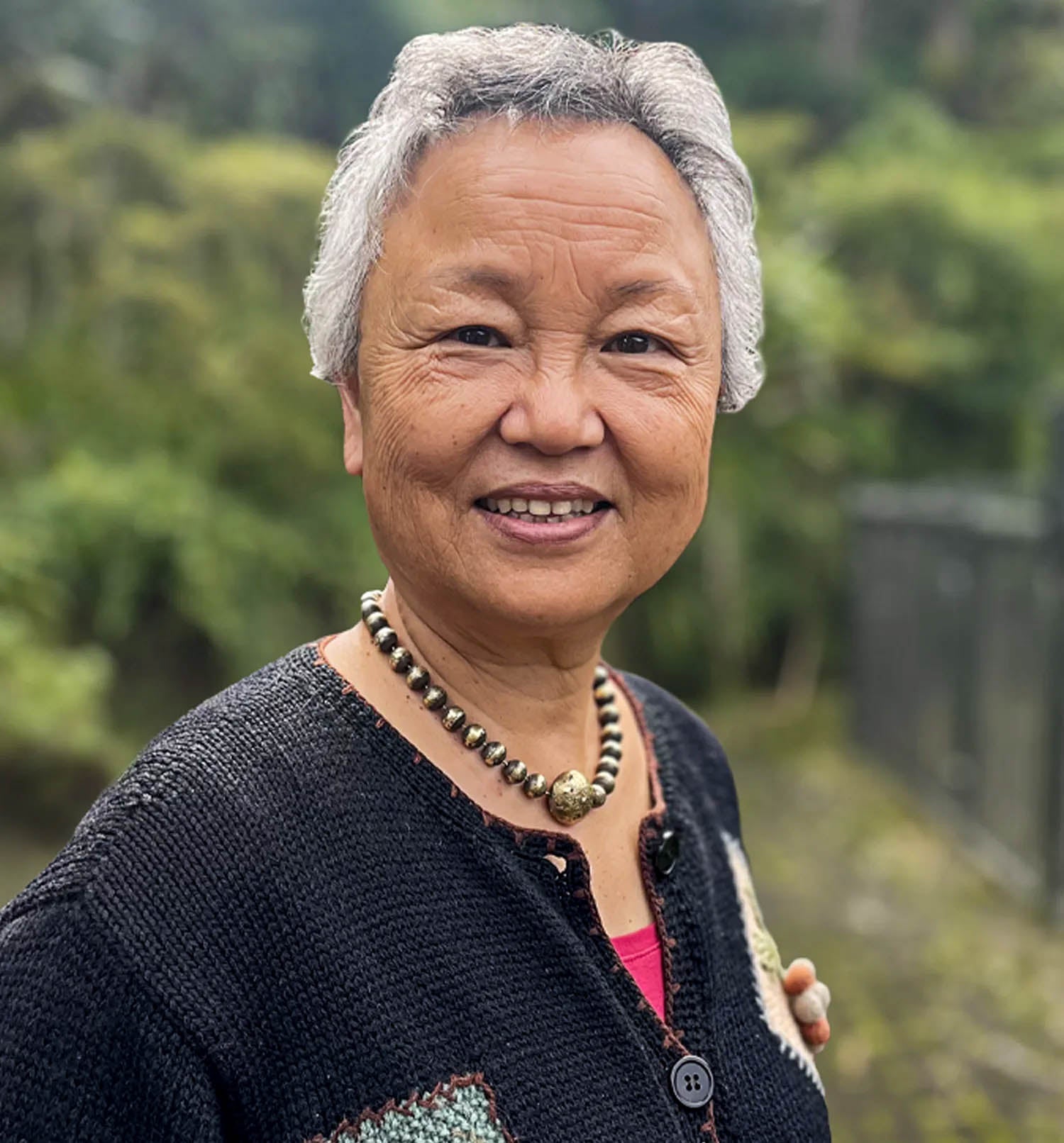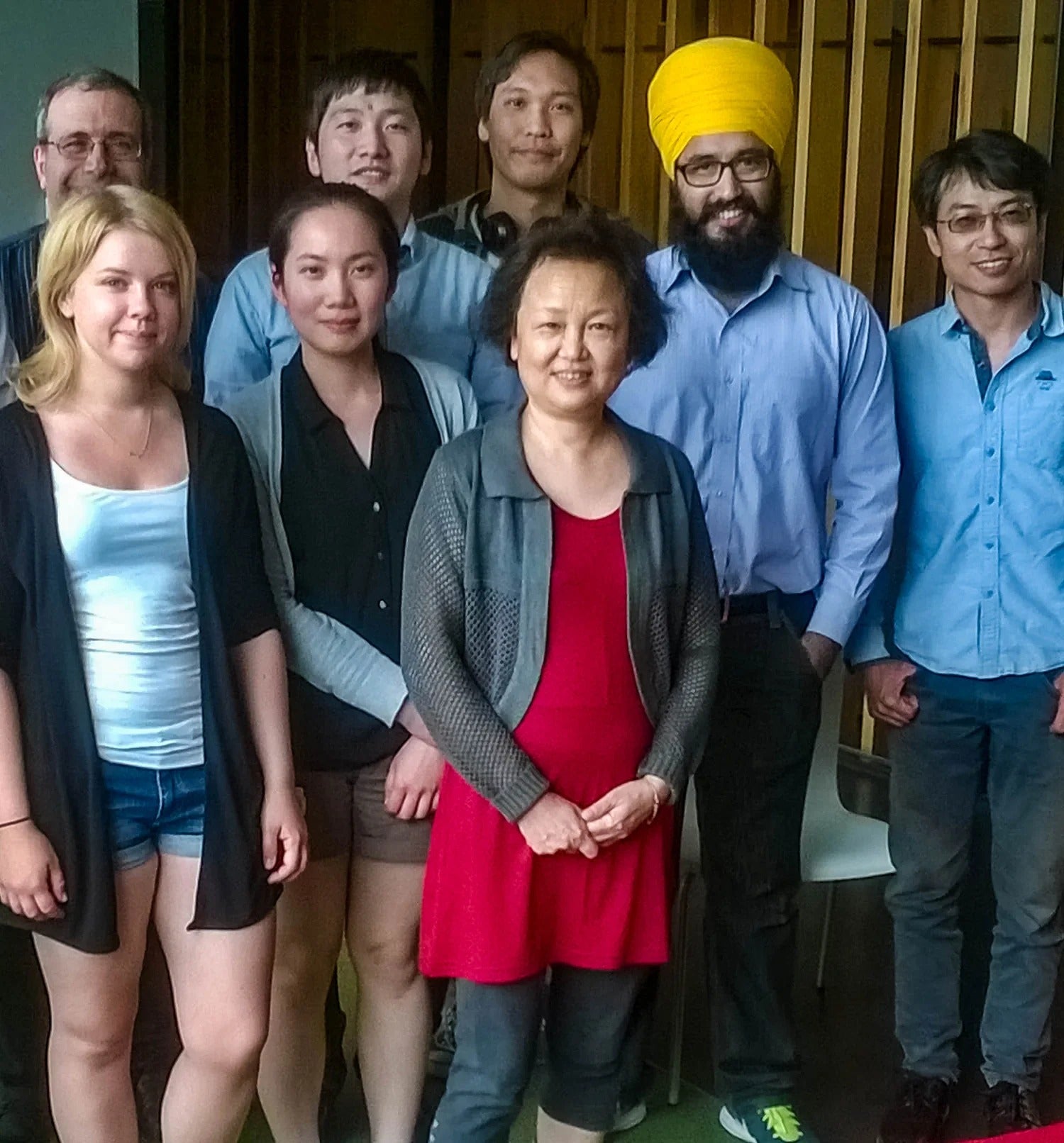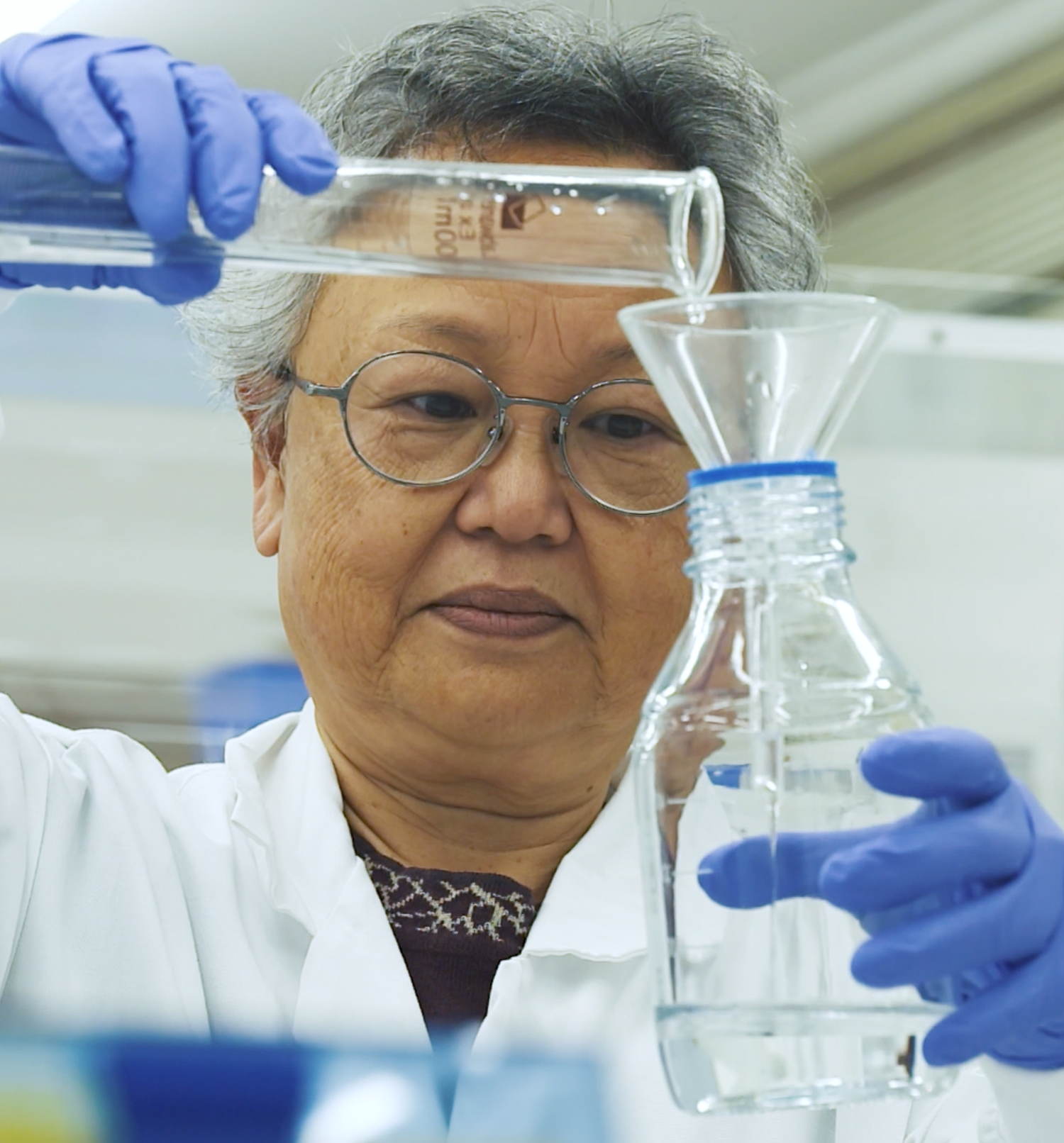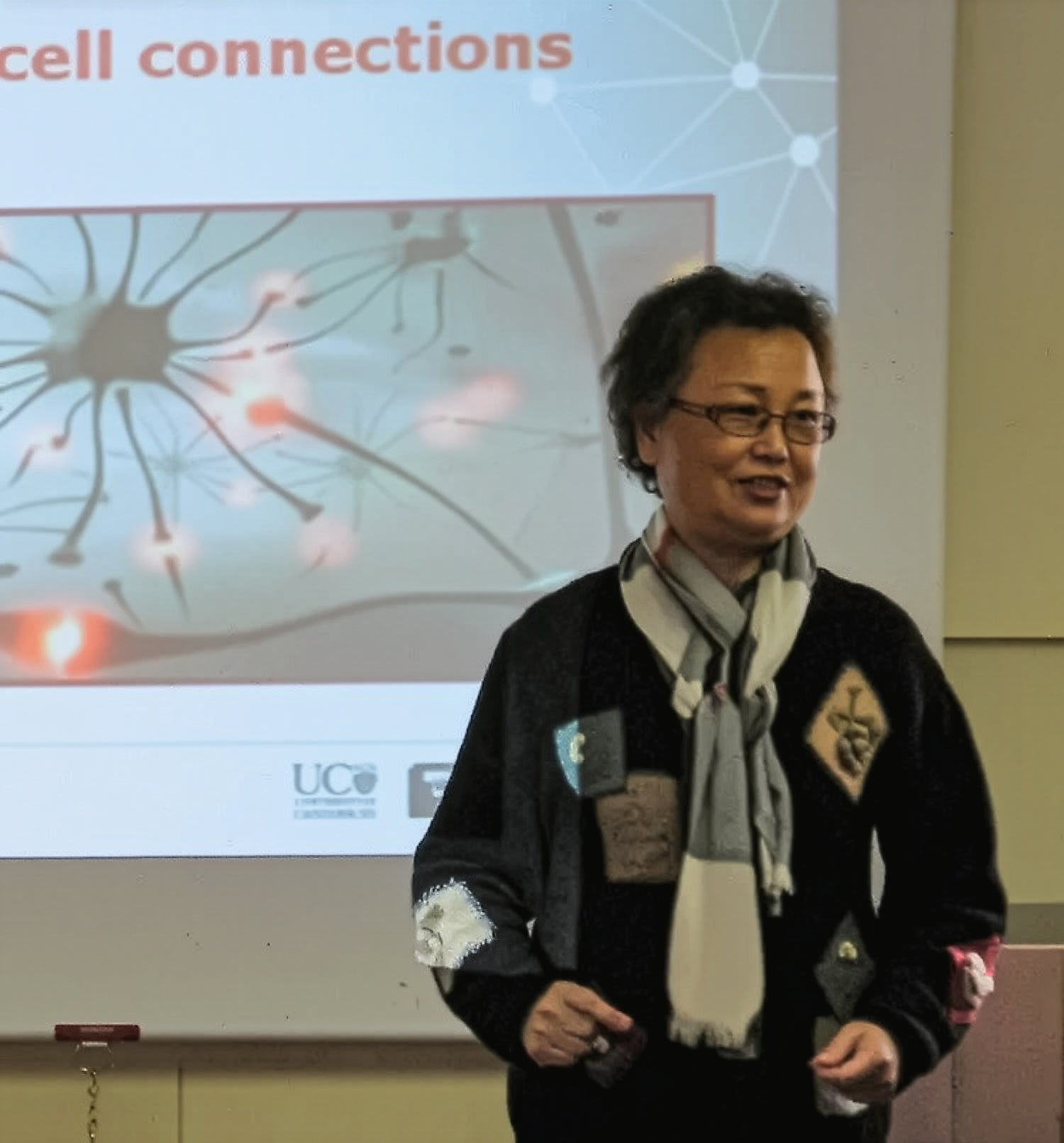About Dr Jian Guan

Chief Science Officer, Dr Jian Guan is an internationally recognised neuroscientist who discovered and currently leads the science around the protective effects of IGF-1, its sub-molecules (GPE and cGP), and their potential role in treating neurological and non-neurological conditions.
The development of the cGPMAX® range is the culmination of her dedication, drive, and 30 years of dedicated scientific study. She is also a mother, grandmother, artist, and Honorary Associate Professor at the University of Auckland.
Jian began her career as a paediatrician after completing a Bachelor of Medicine in China in 1982. She then moved to New Zealand in the early 1990s to start her research training under the supervision of Sir Peter Gluckman, culminating in the completion of her PhD in Paediatrics at the University of Auckland in 1996.
Working alongside Sir Peter Gluckman, her love for research began to evolve. She went on to spend 30 years as part of the University of Auckland in various roles and departments, where she made several world-first discoveries and became the pioneering leader in her chosen field.
cGP: the beginnings of a ground-breaking discovery
Dr Guan’s research journey began by understanding the life-essential hormone IGF-1 (Insulin-Like Growth Factor-1) and its role in brain functioning, where she discovered a sub-molecule of IGF-1 called GPE (Glycine-Proline-Glutamate). Her study revealed that GPE also had neuroprotective benefits that aided recovery from stroke and that it offered a more viable alternative for therapeutic interventions than IGF-1 did as a hormone.
This discovery was a significant scientific breakthrough and led to the formation of the first University-based Pharmaceutical Company in New Zealand called NeuronZ (now Neuren Pharmaceuticals). The company attracted $100 million in funding, and Dr Guan led the research underpinning the early development of a synthetic version of GPE (NNZ2566) to treat traumatic brain injury and later childhood neurodevelopmental conditions. NNZ2566 was recently released as a product called Daybue by Neuren Pharmaceuticals and was approved by the FDA as a treatment for Rett Syndrome, a debilitating neurodevelopmental disorder that emerges in early childhood.
Not long after, Dr Guan made a second landmark discovery when she identified another IGF-1 sub-molecule, cGP (cyclic Glycine-Proline), which seemed even more promising than GPE. cGP was able to restore and maintain IGF-1 function - a discovery deemed “groundbreaking” as it offered a promising potential solution to an issue that had challenged scientists for many years. This discovery secured additional funding to study a synthetic version of cGP (NNZ2591) for treating neurodegenerative conditions such as dementia and age-related cognitive impairment.

Consultancy and collaborations: Dr Guan’s impact
Dr Guan’s cutting-edge work has been published in more than 200 publications, 14 book chapters, and presented at over 117 conference publications. She is also the inventor of over ten patents and has been invited to present at 22 invited lectures across the globe. An article in the Progress in Neurology journal cited Dr Guan’s landmark discovery of IGF-1 in neuroprotection and confirmed her position as the leading scientist in her field.
In addition to her research, Dr Guan has mentored the next generation of scientists and supported her fellow staff members. Under the guidance of Dr Guan, many students, from undergraduates to PhD students (and everything in between), have excelled in their domains. She has supervised more than 20 PhD theses and continues to support the pursuit of knowledge by reviewing journal articles for scientists all over the globe. She has even supported science programmes at high schools, inspiring young people to consider science careers as well as assisting teachers in their teaching methods.
Dr Guan’s research career has paved the way for scientific innovation and commercialisation. Over the years, Dr Guan has collaborated with other respected academics globally in her quest to understand cGP, brain ageing, and vascular degeneration. These collaborations have contributed greatly to the understanding of brain functioning and potential therapeutic interventions, including mild cognitive impairment, Dementia, Parkinson’s Disease, Traumatic Brain Injury, Ischemic brain injury (stroke), cancer research, metabolic disorders, and recovery of peripheral injuries.
Commercialising research outcomes has always been important to Dr Guan, which has led to her providing scientific consultancy to several key businesses. She has developed research protocols and led several commercial research programmes to help develop products or interventions for improving cognitive health. She has helped develop products from medicines to functional foods and now dietary supplements that cater to a wide range of health conditions.

Blackcurrants: the foundation for oral cGP supplements
In 2017, one such project led to her world-first discovery of finding cGP in a natural source - the New Zealand blackcurrant. This discovery was an unexpected finding from a clinical trial with Parkinson’s Disease patients using blackcurrant supplementation to aid symptoms. Later examination found that the patients had increased cGP levels in their cerebral spinal fluid and reported improvements in mood (anxiety and depression scores).
This led to Dr Guan’s collaborations with the founders of The cGP Lab to test a wide range of foods, including many varieties of blackcurrants, to determine which sources had the highest levels of naturally occurring cGP. With the help of manufacturing and research partners they went on to develop a production process that enhanced and stabilised the naturally occurring cGP for encapsulation and to deliver the correct level for health benefits. Dr Guan’s breakthrough discovery of cGP in food sources allowed the development of the first ever oral cGP supplement that brought to life her vision of a product that focused on improving age-related symptoms and slowing the progress of age-related decline. cGPMAX® Brain Health is the first product in the world to deliver natural cGP.

Research summary
To this day, Dr Guan’s passion for research continues. In her role as Chief Scientific Officer at The cGP Lab, she continues to discover the many ways in which cGP can help improve health outcomes for people and conditions. The cGP Lab is committed to producing more products in the future that incorporate her latest research findings and help more people in their health journeys.
The key findings of Dr Guan's research can be summarised as follows:
1. The discovery of the neuroprotective effects and mechanisms of Insulin-like growth factor-1 (IGF-1). This research led to the discovery of the neuroprotective effects of an IGF-1 related molecule, glycine-proline-glutamate (GPE).
2. The evaluation of the efficacy and mechanisms of GPE and its synthetic counterparts led to a clinical trial for stroke and the discovery of neuroprotection by another IGF-1 sub-molecule, cyclic glycine-proline (cGP).
3. Research on how these sub-molecules (GPE and cGP) and their synthetic counterparts are processed in the body and how they impact biological processes resulted in 2 clinical trials aimed at treating cognitive impairments.
4. The discovery of the mechanisms of cGP and its broad clinical applications in other medical conditions with impaired IGF-1 function.
5. The effects and mechanism of complex dairy lipids in brain development and function, and in preventing age-related cognitive decline. The research led to a clinical trial and marketing of an infant formula (AnMum).
6. The developmental origins of, and metabolic disorders in, brain degeneration and premature brain ageing.
7. Discovery of natural cGP from foods, leading to the development of oral cGP supplements and potential applications as medical nutritional foods.
8. Discovered the role of natural cGP in non-neurological conditions, particularly conditions resulting from impaired blood circulation.
9. Discovery of improving diabetic peripheral neuropathy through supplementation of natural cGP.
Publications
Dr Guan’s five most influential works are as follows:
1. 1993, GUAN J, WILLIAMS CE, GUNNING M, MALLARD EC AND GLUCKMAN PD
The effects of IGF1 treatment after hypoxicischemic brain injury in adult rats. J Cereb Blood Flow Metab 13:609616.
The article reported for the first time the efficacy and mode of action of IGF-1 after brain injury and it has been cited 275 times (Scopus) (impact factor: 5.8).
2. 2004 GUAN J, THOMAS G B, LIN H, MATAI S, BACHELOR D C, GEORGE S, FERNANDEZ J AND GLUCKMAN PD
Neuroprotective effects of the N-terminal tripeptide of insulin-like growth factor –1, glycine-proline-glutamate (GPE) following intravenous infusion in hypoxic-ischemic adult rats. Neuropharmacology Vol 47 (6): 892-903.
The article reported the landmark discovery, which led to three ongoing clinical trials. This article has been cited 104 times (Scopus) (impact factor 5.1).
3. *2013 Guan J, Pavlovic D, Darkie N, Waldvigel H, Green C and Nicholson L.
Vascular degeneration of Parkinson's Disease, Brain Pathology 23(2) 154-164 doi:10.1111/j.1750-3639.2012.00628).
This is the very first report of Parkinson's disease as a small vessel disease. The report has been cited 173 times (impact factor 4.8).
4. *2014 GUAN J, GLUCKMAN PD, YANG PZ, KRISSANSEN G, SUN K, ZHOU Y, WEN JY, SHORTEN P, WAKE G, MCMAHON CD, THOMAS MF, PHILIP G, CHEN W, S MOON, A REN AND LIU DX,
Cyclic glycine-proline regulates IGF-1 homeostasis by altering the binding of IGFBP-3 to IGF-1 Scientific Report-Nature. 4, 4388.
The article has been cited 70 times (impact factor 5.578). The article shares the landmark discovery and reports the mechanism of IGF-1 metabolite (s). The discovery broadened the application of IGF-1 metabolite(s) beyond neurological conditions and generated international collaborations into cancer research, metabolic disorders, and recovery of peripheral injuries.
5. 2018 Fan D, Alamri Y, Liu K, MacAskill M, Harris P, Brimble M, et al.
Supplementation of Blackcurrant Anthocyanins Increased Cyclic Glycine-Proline in the Cerebrospinal Fluid of Parkinson’s Patients: Potential Treatment to Improve Insulin-Like Growth Factor-1 Function. Nutrients 2018;10:714. doi:10.3390/nu10060714.
This article has been cited 55 times (impact factor 4.16). This article provided evidence of using organic cGP in improving brain health.
